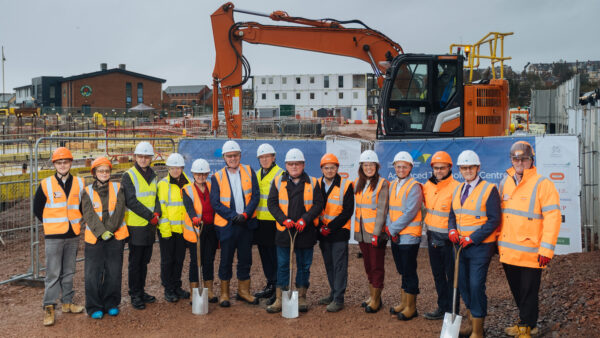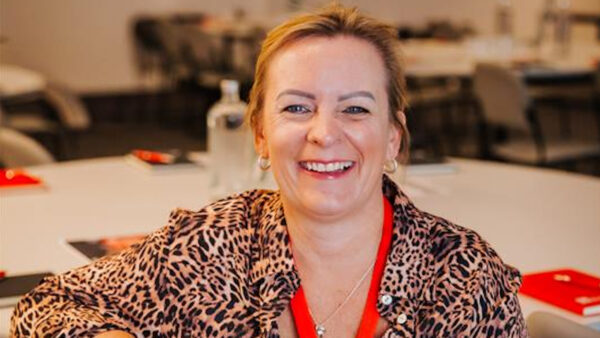
Marshalls: streamlining supply chains in manufacturing to protect children and migrant workers
Paving supplier Marshalls sources its stone products from quarries and manufacturing plants in countries such as India, China and Vietnam.
In 2005, group marketing director Chris Harrop visited suppliers in Rajasthan, in western India. He was keen to get a better understanding of sandstone production, but did not explain the purpose of his visit. As a result he was given access to a wide range of the production facilities.
Harrop was shocked at the levels of exploitation he witnessed. Children as young as six were working in the quarries and manufacturing plants. They were living in squalid conditions, and were regularly being exposed to high levels of noise, dust and vibration, as well as dangerous activities.

Chris Harrop: “blatant abuse”
With their parents working – even when sick or injured – many children were labouring not only due to poverty, but because there was no one to care for them off site. They had no access to education.
“What struck me was that this was so blatant,” Harrop says. “Locally it was seen as a normal and accepted practice.
“The scale of the challenge was immense. We realised that the only way forward was to bring in experts and to start working collaboratively.”
The company, unaware of any existing industry initiatives to tackle such problems, sought out best practice in other sectors. That same year, it joined the Ethical Trading Initiative (ETI), an international alliance of companies, trade unions and NGOs, which was originally founded by British retailers.
Marshalls adopted the ETI Base Code. This code of labour practice is based on International Labour Organisation (ILO) principles and covers areas such as child and bonded labour, living wages, health and safety, discrimination and inhumane treatment.
The company introduced a range of activities to support the supplier and the wider community, including:
- Integrating systems. Marshalls now shares a common enterprise resource planning (ERP) system
with stone shippers. - Helping the supplier establish a well-run human resources department.
- Forming a long-term partnership with a local NGO to deliver child education, health camps, workers rights education.
- Raising awareness of social insurance with workers, and providing seed funding for a scheme which became self-sustaining after three years.
In 2007, Marshalls launched a campaign to highlight child labour and to help consumers make informed product choices. It published a booklet, The Truth about Indian Sandstone, and has since worked with UNICEF, piloting the charity’s Children’s Rights and Business Principles assessment framework, and funding research on child labour in Rajasthan.
The findings will be used to create a regulatory framework to eliminate child labour in the quarrying industry.
CH2M – creating a worker welfare policy across a vast global business
CH2M is a huge global organisation employing 25,000 people, working in over 50 countries. This includes parts of the world where worker rights is an increasingly controversial topic. Recently, CH2M has acted as a technical consultant for the 2022 World Cup in Qatar and provided initial programme management services to the host committee.
Senior vice-president Theresa Loar says that, as the company has expanded its portfolio in the Middle East and Gulf, it has tried to identify new ways to apply international best practices on worker welfare.
“As advisers to our clients, we do not directly employ contractors or labourers, but we have started to explore how we can make a difference not just within individual programmes and the region, but worldwide,” she explains.
To start this programme, CH2M employed the services of ethical labour expert Verité, an NGO that helps multinationals develop and uphold fair and safe employment practices within their supply chains. After a comprehensive operational review, Verité recommended that CH2M develop a global policy on worker welfare.
“Introducing worker welfare into our standard training, rather than as a standalone topic, is a good way of building it into everything we do.”
Theresa Loar, CH2M
Twelve departments were identified that would be directly affected by the new policy, including procurement, legal, human resources, risk and health and safety. A policy task force was set up, formed by a representative from each of the departments.
After 15 months of intensive work with Verité, in March 2015, CH2M’s global worker welfare policy was signed off by chief executive Jacqueline Hinman. The policy covers issues including fair worker recruitment and payment practices, as well as accommodation and living standards.
For services CH2M is procuring for its own use, initial changes include a new screening process and prequalification questionnaire. At the beginning of every contract, suppliers’ worker welfare policies are evaluated and verified. CH2M also regularly visits sites to ensure that worker accommodation is up to standard.
Worker welfare issues have been woven into existing training courses. Last year 19,000 employees took CH2M’s online ethics programme, which included a segment on the new worker welfare policy.
“Introducing worker welfare into our standard training packages, rather than treating it as a standalone topic, is a good way of keeping this issue live within the company, and building it into everything we do,” Loar says.
More targeted in-depth training is being introduced for employees in influential roles such as procurement, health and safety and project management.
The company is also exploring technology-driven ways of capturing feedback from workers on their living and working conditions via mobile phones.
CH2M wants to share its knowledge and experience. “We have created models and frameworks that could be adapted by other companies working in the built environment,” Loar says. “We also realise that we can’t act alone. Collaboration is essential if we are to move forward as an industry.”
She says the lesson from CH2M’s journey is that internal change must be led from the top of an organisation. “It took more than a year for us to develop our global worker welfare policy, and this involved intensive collaboration between 12 departments and our NGO partner Verité,” Loar explains. “Having so many functions collaborating together would have been impossible without the support and sponsorship of our CEO and head of operations.”











Comments are closed.